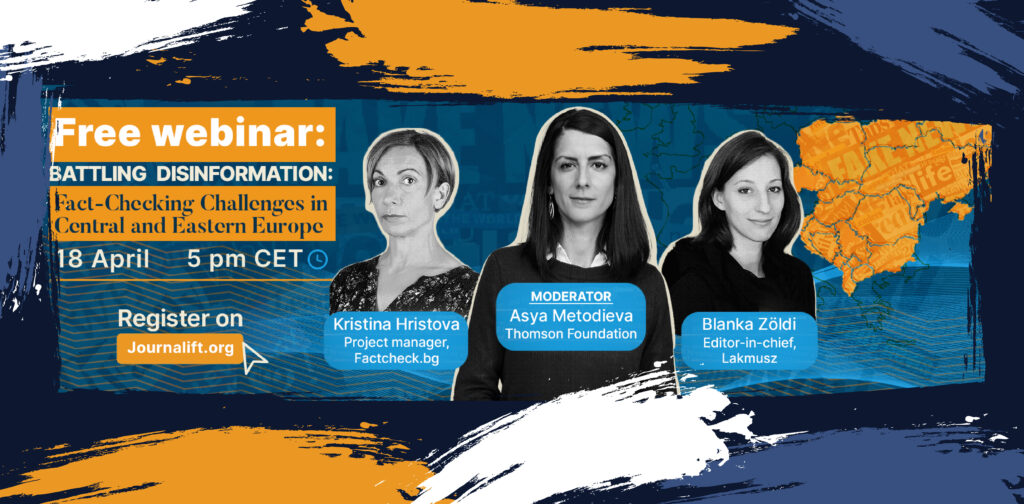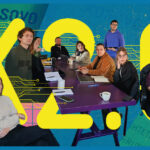Young Lgbt+ persons from Vranje and Strumica Darija and Nikola are related by the same problems they faced during their schooltime. They reluctantly remember their primary and secondary school, where they were target of verbal, but also of physical attacks on almost daily basis, and the teachers, who were supposed to protect them, mainly ignored the violence, thus giving it a kind of legitimacy and becoming silent accomplices in violence and discrimination against Lgbt+ students.
Most teachers in Vranje observed homosexuality an illness, and some of them believe that it can be cured and with adequate educational programme prevented. This was revealed in a recent survey “Position of teachers from Vranje towards Lgbt+ youth”, conducted by the National Youth Council of Serbia. Deputy Mayor and councillor for education has not responded to our question on what the City is planning to do with regard to the results of this survey in order to make school a safe place for all.
At least two to three students in each class can be Lgbt+ persons. Therefore, it is very important to raise awareness among teachers regarding the problems faced by Lgbt+ students, said Ms Gordana Trajković, Master in Pedagogy, and one of the authors of the above mentioned survey. She is of the opinion that if teachers spread their positions based on homophobia or transphobia, this will lead to the adoption of the same positions and development of prejudice among students.
The profession of a teacher requires permanent improvement and mastering of competences and skills. Certain topics, including sexual orientation and gender identity, are still a taboo in the society and school system. Ignorance generates prejudice, and prejudice can lead to different forms of discrimination, even verbal, psychical or physical violence. Education, additional learning and improvement can beat prejudice, but also can be the way to understand and accept mutual differences – claims Ms Trajković.
A consequence of discrimination and violence against Lgbt+ students can lead to the creation of internalised homophobia, as children are taught from the very early age that heterosexuality is the only normal way, explains Ms Trajković.

Lgbt+ persons from Vranje fear to report violence
The Basic Court in Vranje does not have any open criminal proceedings against acts committed on the grounds of sexual orientation or gender identity of a victim over the past five years. The reports of the Commissioner for Gender Equality do not also do not have reported cases of discrimination, and the organisation “To be clear”, which has been recording incidents motivated by homophobia and transphobia for the past five years, and is also a registered provider of free legal aid, there is no any report from Vranje, although they face violence and discrimination against Lgbt+ persons in Vranje almost every day.
Ms Trajković explains that Lgbt+ persons do not report violence because of lack of trust in institutions, fear that they would be mocked at, and that violence will even intensify, as well as because of the fear or outing.
Media do not report sufficiently about such cases, there is not enough news about the pronounced penalties, says Ms Trajković.
Expelled from the school theatre play she directed because she kissed a girl
Darija is a former student of secondary medical school from Vranje, and she had similar experience. She claims that Lgbt+ students of both genders generally do not feel safe in school and that they are often victims of peer violence.
They don’t have anyone to refer to, and when they do, and I speak from my own experience, the teachers neglect them entirely. This leads to a total loss of trust, loss of the protection they have, she says.
In the secondary medical school, they had a psychology class where they learned that homosexuality is a “deviation”.
If I remember well, this was second or third grade of secondary school, and I think that the textbook we learned from is still in use. When I said that I would not learn that as it is incorrect, the teacher told me that I “had to learn” and that I was not “smarter than a textbook editor”. I told her that they were literally teaching us to discriminate against a community which has its representatives in that class as well, says Darija.
Ms Trajković explains that one of the problems is that schools still apply old curriculum, although the World Health Organisation removed homosexuality from the International Classification of Diseases 30 years ago.
Darija remembers discrimination she experienced in secondary school when her peers excluded her from her own theatre play, because they deemed she was “sick”.
What happened to me was that I wrote the screenplay and directed a theatre play for my secondary school, which took second place in a competition, and when I once went to a rehearsal, students of the third and fourth grade told me that I was expelled therefrom, and that I, a “sick person” didn’t have anything to do there. It turns out that they saw me kiss a girl and that was unacceptable for them, says she.
Darija tried to report the violence to a teacher, but she, uninterested in resolving the problem, referred Darija to the school principal.
She told me not to worry and that all would be settled, and that they had probably been joking, and I replied that discriminating someone couldn’t be a “joke”, and insulting someone couldn’t also be a joke, because there were insults as well. She just told me to let it be, Darija recalls.
She decided not to make a fuss of it to avoid additional problems and expose herself to greater vulnerability.
My parents didn’t know at the time. So, this is why there is no report in the prosecution, or anything else, says Darija.
She thinks that schools should start to take specific steps with regard to violence and discrimination reporting.
For the beginning, there should be people to do their job, and when you report violence, they should respond to that and do something. It is useless if I report something, when nothing will happen. By doing so, you send a message to all other and potential victims to grin and bear, as this is better than to report, says she.
There was a workshop in September “Sensibilisation of teachers and professional associates to work with Lgbt+ students”, held in the “Bora Stanković” library in Vranje, as a part of the project “Let’s pull down the four walls”. The lectures were delivered by Ms Gordana Trajković, a pedagogist, and Ms Aleksandra Ilić, a psychologist. Around twenty teachers, school pedagogists and psychologists had an opportunity to get familiar with the expressions and positive examples regarding the ways to prevent violence and suppress homophobia in schools, and to provide support to Lgbt+ students.

Similar position of Lgbt+ youth in North Macedonia
Bearing in mind similar economic and cultural values, the position of Lgbt+ persons is not better in smaller cities throughout the region. In North Macedonia, in Strumica, we spoke to Nikola, a member of Lgbt+ community and an ally for rights of transgender persons.
When he was still in high school, he was open in the support to his transgender friends by being on their side in the legal fight for the change of gender.
At the time, I came to school with a friend to change gender in his school papers, and the school secretary looked at in silence, says Nikola and added that she did not even know how to do that, as no one before had had such a request and no application had been sent to the procedure.
Nikola was forbidden to enter a café with his transgender friend.
Everybody knows everybody around here, you cannot hide your identity. Whatever you do, you will be a freak in their eyes, says Nikola.
In his fight for the rights of Lgbt+ youth in Strumica, he witnessed violence against his transgender friends. However, when he decided to go with his friends together to report the violence, they found no interest in the Police Station.
The police officer pretended to be listening to us, and once we left, the file ended in a drawer, says Nikola, and adds that there have been no reports on discrimination or hate crime in his city as long as he can remember.
A year ago, North Macedonia adopted the new Law on Discrimination, which recognised for the first time discrimination on the grounds of sexual orientation as a specific form of discrimination. The Law stipulates the establishment of an “Anti-Discrimination Commission”, which would take the cases in consideration.
We have a lack of human resources, technical support and funds, says Mr Igor Jadrovski, a Commission member.
They have responded in several cases of discrimination through media, institutions and companies, but as they claim, cannot achieve much with limited capacities and lack of awareness in institutions.
This is a systemic problem. We still have school textbooks where you can find elements of discrimination and hate speech against marginalised groups, explains Mr Jadrovski.
Nikola is currently leading the “LGBT+ Core Strumica” organisation. In the region with less than 100,000 inhabitants, he is proud to have 90 members in his organisation.
I am willing to stay and fight for these rights, he says proudly. Although most of his friends, also neglected by the Capital City, tend to emigrate, he wants to continue to fight for a better future in his own city.
Nikola is satisfied with the laws of North Macedonia, but says that they must be implemented, which also can be said for laws in Serbia and throughout the region.

Antrfile: Mini Pride in Vranje 2019: It is important that young Lgbt+ persons outside Belgrade feel support and that they are not alone
Under the slogan “I do not give up Vranje” and banners such as “I do not give up” “friends”, “myself”, “love”, around 15 people walked through Vranje with rainbow and trans flags.
One of the organisers, Ms Fiona Jelić, said that there were no incidents, but the citizens of Vranje did not join the walk.
We walked along the main street in Vranje, and this was quite short, there were no incidents, but also no citizens to join. All these Mini Prides held in nine more cities were the announcement of the Belgrade Pride. I remember that the Police were not delighted to have that in Vranje, and that negative atmosphere could be felt, but nothing negative actually happened, says Fiona.
Most workshops and educational courses, as she says, are delivered in Belgrade, but she says it is important to address problems faced by Lgbt+ persons in smaller cities and towns as well.
It was necessary to decentralise our activities, and to provide such support outside Belgrade as well. It is important that youth and members of the community in smaller cities and towns in Serbia feel the support and that they are not alone, says Fiona.
Note: The name of a former student of secondary medical school was changed as a protection of her identity.
Violence of discrimination on the grounds of one’s sexual orientation/gender identity can be reported to the Basic Public Prosecutor’s Office in Vranje, and you can also contact anonymously the organisation To be clear, a provider of free legal and psychological aid, and one can also refer to the Commissioner for the protection of equality.
Violence or discrimination on the grounds of one’s sexual orientation/gender identity can be reported to the Basic Public Prosecutor’s Office in Strumica, and you can also contact anonymously the organisation LGBT+ Core Strumica, and one can also refer to the Commissioner for the protection of equality.
Dejana Cvetković (Serbia), Darko Miloshevski (North Macedonia), Vukašin Živković (Serbia)































